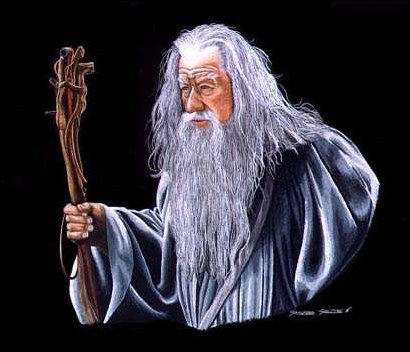Sometimes when I speak of non-violent methods of creating change, people say I'm a utopian, and express surprise that I could be a history teacher. "Isn't violence (war) necessary? Look at history."
My answer: "Look at history, indeed. Look at the causes of wars past. Weren't they preventable? Couldn't we have avoided Hitler, for example, with a better resolution of WWI? Couldn't we have avoided WWI with less colonialism around the turn of the century? Further, look at the examples of non-violent changes that were massive. Consider Gandhi..."
Gandhi is really the patron saint of non-violent resistance. His word was "satyagraha." This word is actually a combination of two words meaning "truth" and "hold firmly." Hold firmly to the truth. Sometimes it is stated in English as "truth force" or even "soul force."
Why is non-violence necessary, according to Gandhi? This is because no one has a firm hold on absolute truth. We are merely human. Our understandings are necessarily limited. If we cannot grasp absolute truth, then we have no right to use force- violence- to compel anyone to adopt our sense of truth. Only arrogance allows for violence. Humanity recognizes the possibility of error, and thus should not allow us to use force.
Gandhi was not a moral relativist. He didn't think there was no right or wrong. He had an obvious and powerful moral compass. He just held out the possibility of error. How wrong would it be to have dealt out an irreversible punishment (death by violence) in error?
Take America for example. Isn't democracy the best form of government there is? (Churchill once said it was the worst form except for all the others.) I agree that it is. Why not compel others- the Iraqis, for example- to practice it? Well, look at how American democracy has evolved in our more than 200 year history. We have gone from a democracy of white male property-holders to a much more expansive view of democracy. Look at the errors of our democracy (slavery, Jim Crow, denying the vote to women, interment of the Japanese). But we still haven't ironed out all of the wrinkles. Religious questions still can tie our democracy in knots from time to time. We have trouble defining the limitations on our rights, balancing our desires for security with our goals of freedom. We don't have a grasp on an absolute truth of democracy.
Furthermore, our democracy has developed over time because it was free to do so. Can democracy be imposed at the point of a gun? Certainly Saddam was an evil dictator, but how many evil dictators are there in the world? Are we going to force them all to adopt our vision of democracy? What then when our vision changes, as it has in the past? Are we then going to force them to adopt that?
Foreign policy by arrogance is a fool's errand.
GP
Sunday, June 04, 2006
Subscribe to:
Post Comments (Atom)


1 comment:
Very pretty site! Keep working. thnx!
»
Post a Comment